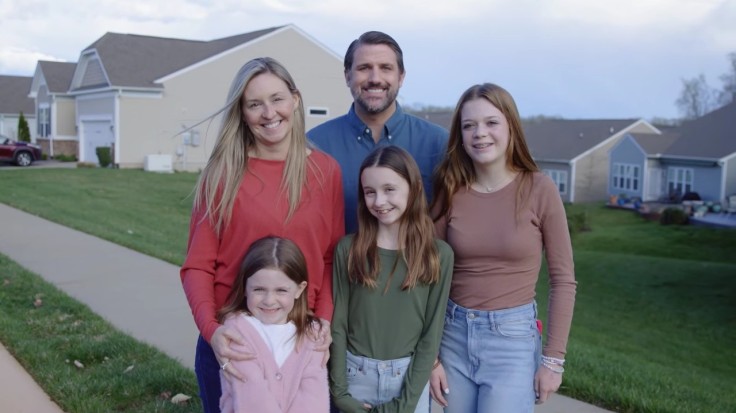
An unmarried, child-free Republican congressional candidate recently posed for a photo with a woman and three children in what is believed to be a family holiday card. However, it was later known that the people he posed with were actually the wife and kids of a friend.
The photo was posted on the National Republican Campaign Committee website as part of an effort to promote the campaign of Derrick Anderson. The photo was also included in a video posted on YouTube. In a separate scene, the candidate was seen sitting around a dining room table with the same woman and children.
It was later revealed that Anderson was unmarried and did not currently have children of his own. The woman and children in the photo were the wife and children of Anderson's longtime friend whose identity was not publicly revealed. It was first reported by The New York Times.
However, he is engaged to a woman named Maggie, per a video he posted on X (formerly Twitter) earlier this month.
Why Anderson Posted With His Friend's Wife and Children
In the article from NYT, the author noted that Republican candidates are now relying on "their wives" to "soften their image." This comes as conservative candidates are struggling to appeal to female voters over their views on reproductive healthcare and rights, which also includes abortion.
In response to NYT's article, Anderson's spokesperson called it a "normal campaign video" that simply showed the candidate posing with "female supporters."
Anderson's Stance on Reproductive Rights
In 2022, Anderson supported the Supreme Court's decision to overturn Roe v. Wade. This ruling allowed individual states to determine their own abortion laws, with many enacting outright bans. Women in some states now have to travel to other states to receive abortion care where the procedure is still legal.
"SCOTUS finally got it right," Anderson wrote on X.
He appeared to skip a question concerning reproductive rights during a candidate forum this month when a reporter asked him where he supported giving women the right to choose. Anderson only said the decision should be up to "each state."